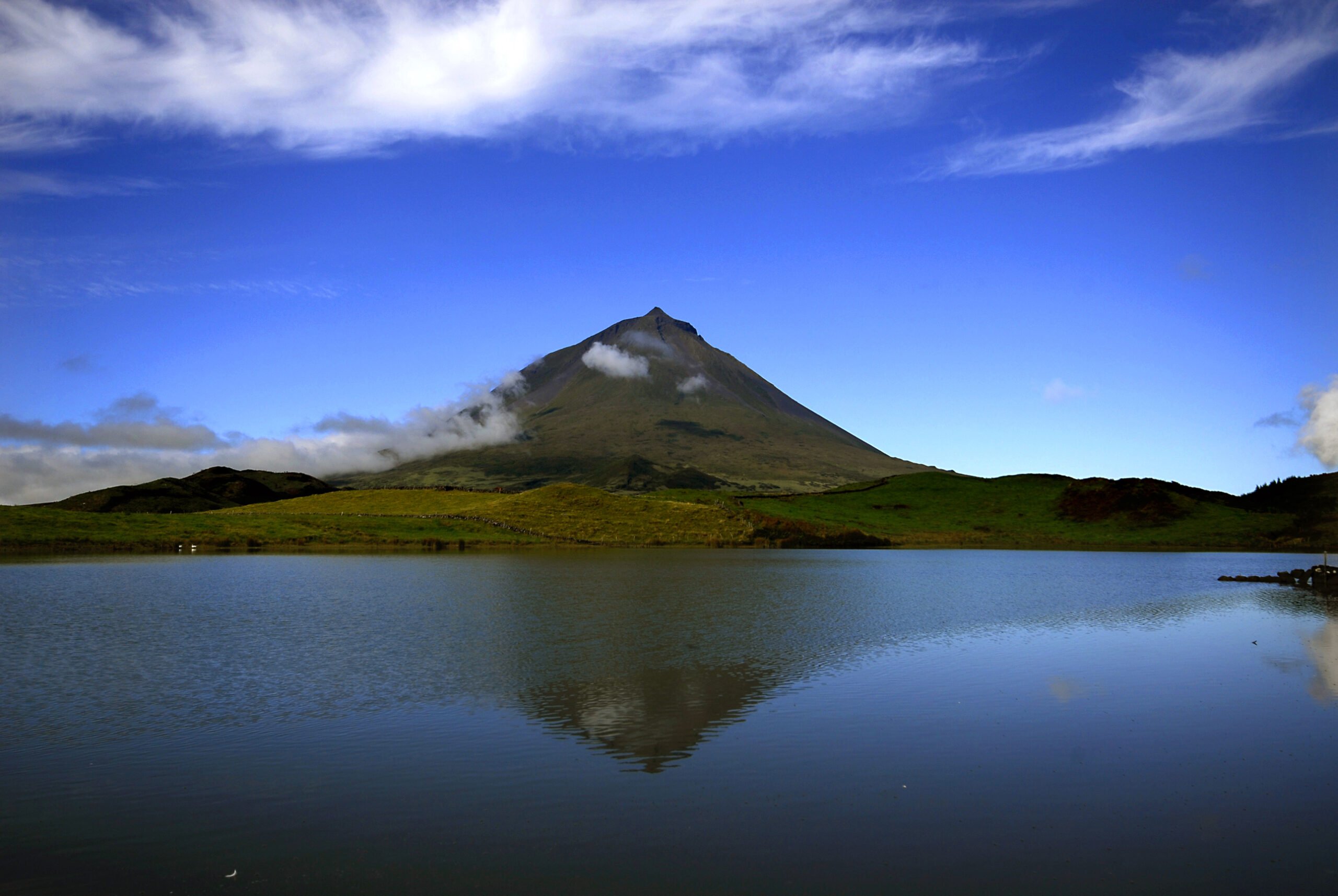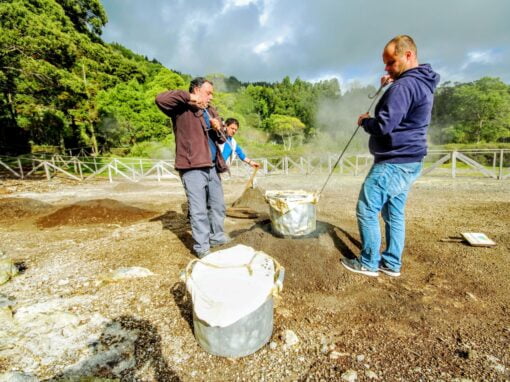The Azores UNESCO Global Geopark has a rich geodiversity and an important geological heritage, based on a network of 121 geosites dispersed by the nine islands and the surrounding seafloor, with a total area of 12,884 sq. km (including the 2,324 sq. km of the emerged territory).
All the Azores islands are of volcanic origin and are oceanic islands that emerged from the surrounding seafloor due to the progressively piled up of submarine volcanic products, a process that should have started about 36 million years (M.y.)
The international relevance of the archipelago’s geology relies on its 27 main volcanic systems, in which 16 of them are still active, even on a dormant stage. The Azorean geodiversity includes geo-landscapes as domes and coulées, calderas, lakes, lava fields, fumaroles, hot springs and thermal waters, volcanic caves, “fajãs”, fault scarps and marine fossil deposits, among many others.
Since the settlement (in the 15th century), the Azorean people learned how to live with active volcanoes and frequent earthquakes, taking advantage of its fertile soils (e.g. winery landscapes), their geological resources (e.g. water and thermal areas) and beautiful landscapes that ever since attracts visitors from all over the World.
The Azores archipelago is located at the triple junction of the North American, Eurasian and African lithospheric plates. These oceanic volcanic islands emerge from the Azores Plateau, which is defined by the 2,000 meters bathimetric line and is roughly N-S crossed by the Mid-Atlantic Ridge. The oldest terrestrial volcanism (about 8 million years) is present on Santa Maria Island, while Pico is the youngest island of the archipelago that emerged about 300,000 years ago. There are 27 main volcanic systems, with 16 major central volcanoes (12 of them silicic and with summit subsidence calderas) and 11 volcanic ridges associated with basaltic fissure volcanism, among which 9 polygenetic volcanoes and 7 fissural ridges are active. The small insular territory has about 1,750 monogenetic volcanoes, tectonic structures, Miocene sedimentary rocks and offshore deep-sea hydrothermal fields and seamount volcanoes.
The Açores UNESCO Global Geopark combines the protection and promotion of its geological heritage with the sustainable development of their communities, with a socio-economic, educational, environmental and cultural focus. Environmental education and awareness activities focus on the volcanic origin of the islands, its geolandscapes and geological processes, in close cooperation with the regional network of “Ecotecas”.




